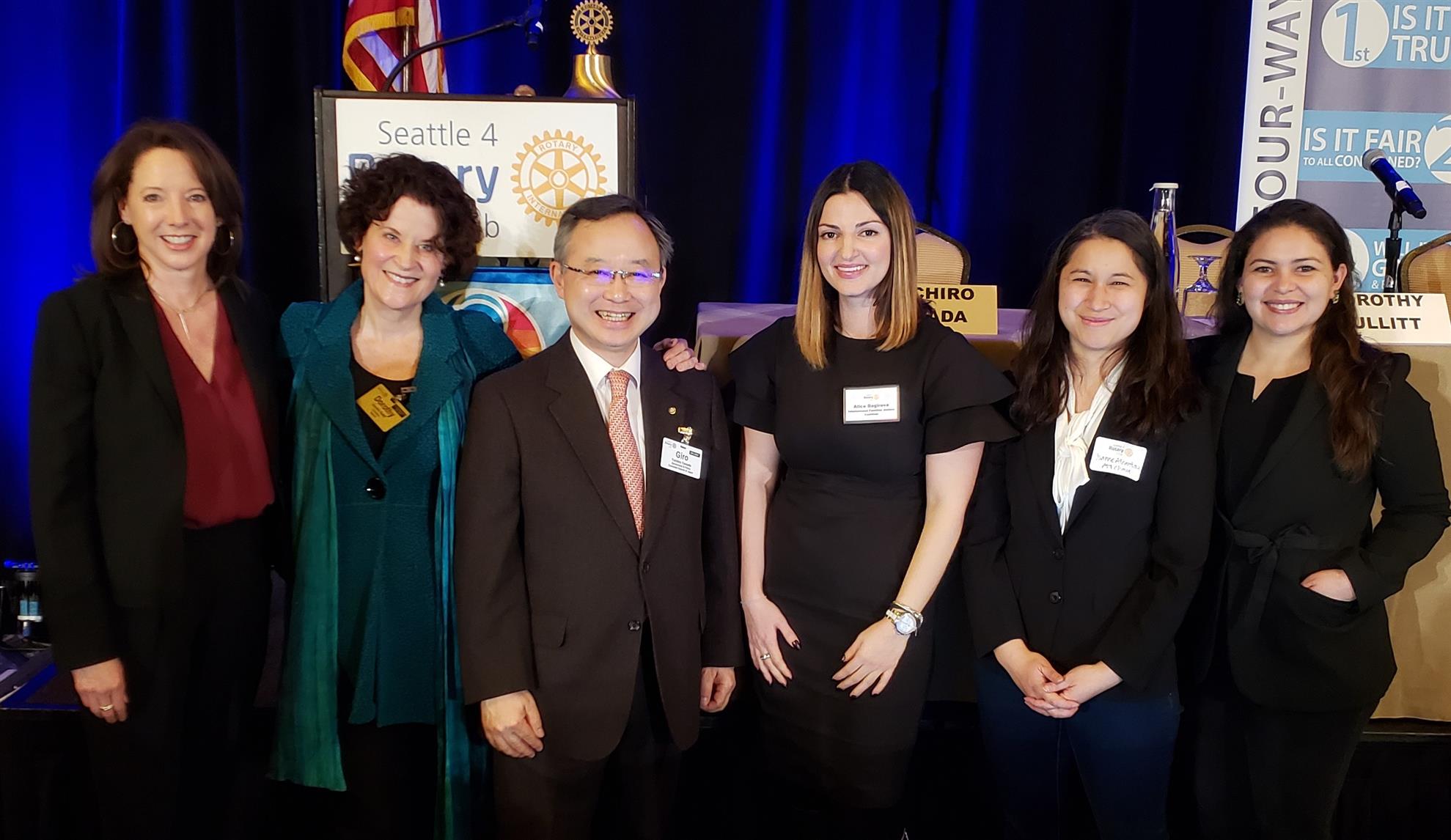 To begin the panel, Japanese Consul General Yoichiro Yamada reminded us that behind success are many untold tragedies. As part of his consular responsibilities, he has had to help Japanese women immigrants who have been abused or abandoned by their husbands. These women are vulnerable because they are so totally dependent upon their husbands. Many don’t speak English or know their rights as residents in the U.S. These experiences led him to become involved in the general problem of vulnerable people who are in the same situation. There are so many that Washington State needs to take the initiative to solve this problem.
To begin the panel, Japanese Consul General Yoichiro Yamada reminded us that behind success are many untold tragedies. As part of his consular responsibilities, he has had to help Japanese women immigrants who have been abused or abandoned by their husbands. These women are vulnerable because they are so totally dependent upon their husbands. Many don’t speak English or know their rights as residents in the U.S. These experiences led him to become involved in the general problem of vulnerable people who are in the same situation. There are so many that Washington State needs to take the initiative to solve this problem.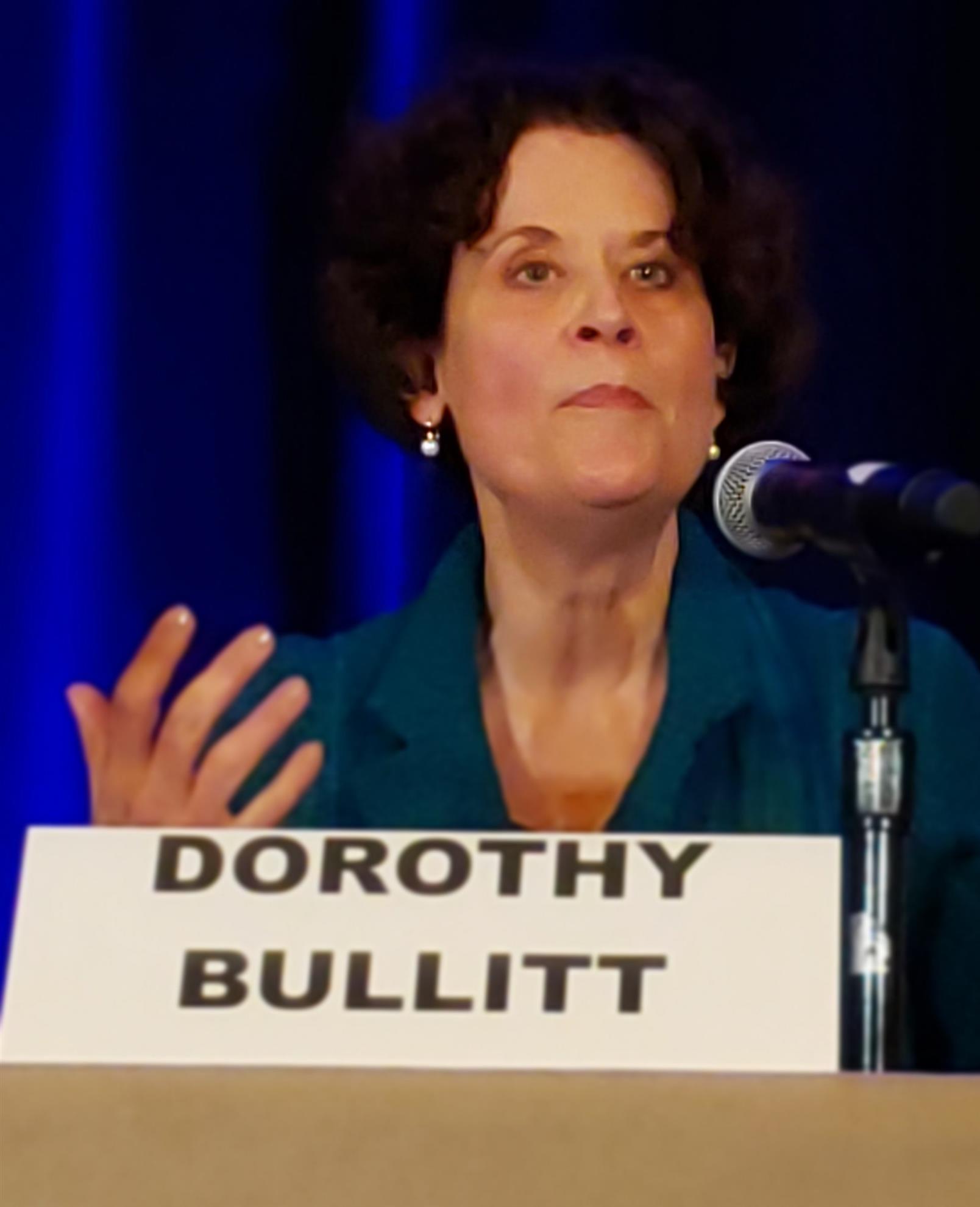
It is a great shame that people who come to the U.S. with open arms and high hopes are treated so badly.
We saw a video about a Japanese woman who was married to an American soldier and then divorced. The consulate receives 200 inquiries about divorce per year. The International Families Justice Coalition (IFJC) was formed to help these women connect with legal resources.
The day's panel, led by Dorothy Bullitt, included Alice Bagirova, Malou Chavez, and Joanne Alcantara.
Joanne is the Executive Director of API Chaya, which works with Asian and Pacific Islander individuals. Violence is the most serious challenge from domestic conflict. We were reminded of the three Filipino women gunned down by an abusive spouse in Seattle in 1995. There was also the case of a Chinese woman whose husband was abusing her and her children while keeping them isolated in a rural cabin separate from her community.
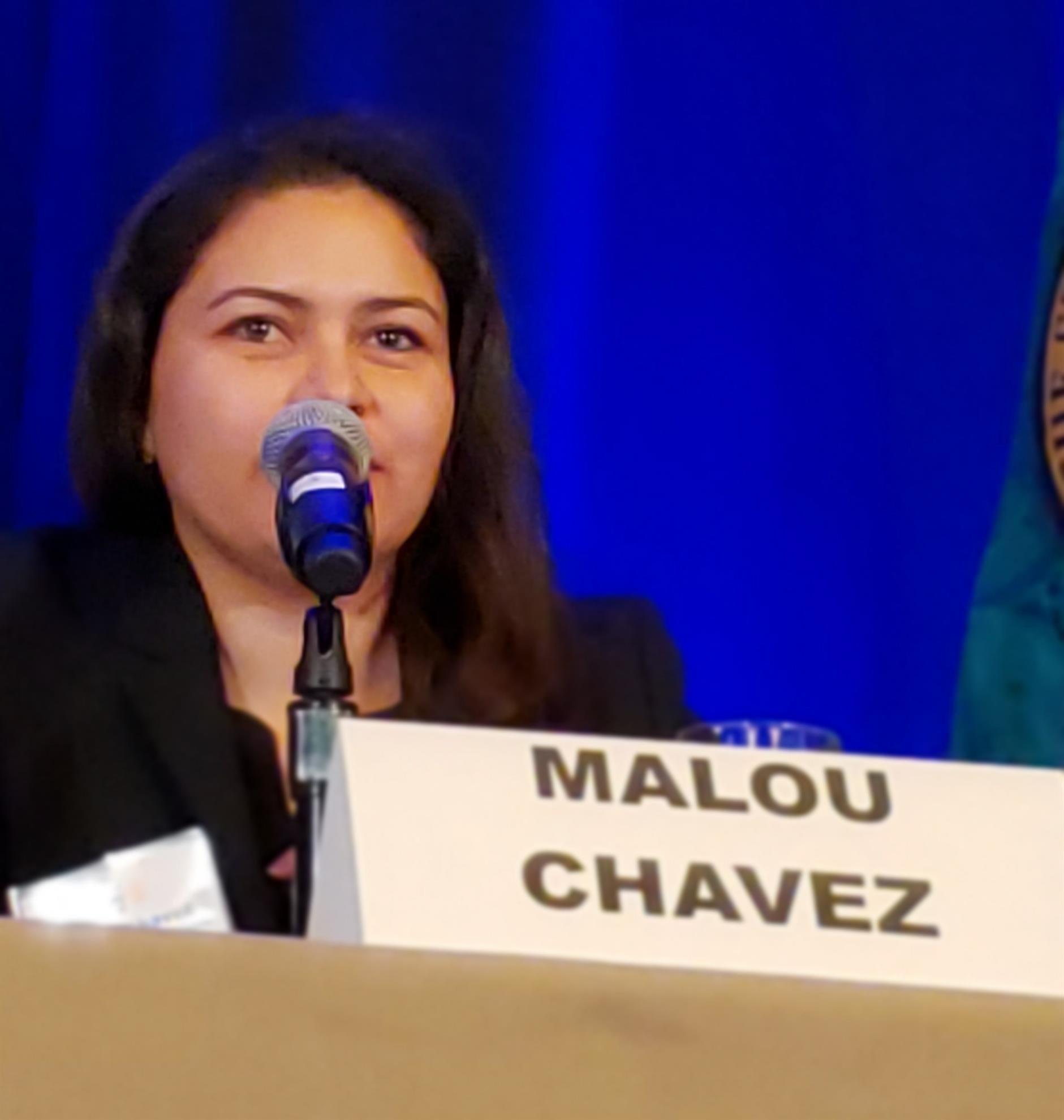 Malou is Deputy Director of Northwest Immigrant Rights Project which provides legal services in the immigration context. Her organization hopes to change immigration practices in the US and serves clients who are seeking to maintain or improve their immigration status. They have a waiting list of 600 people.
Malou is Deputy Director of Northwest Immigrant Rights Project which provides legal services in the immigration context. Her organization hopes to change immigration practices in the US and serves clients who are seeking to maintain or improve their immigration status. They have a waiting list of 600 people.
Alice Bagirova represented the International Family Justice Coalition. This organization is made up of volunteer attorneys, many of whom are multi-lingual. They focus on divorce, family law, and domestic violence. If a spouse tries to use financial support to coerce the victim to sign away rights, they can make sure that the victim gets legal support. Alice currently provides legal services to 20 people through the IFJC.
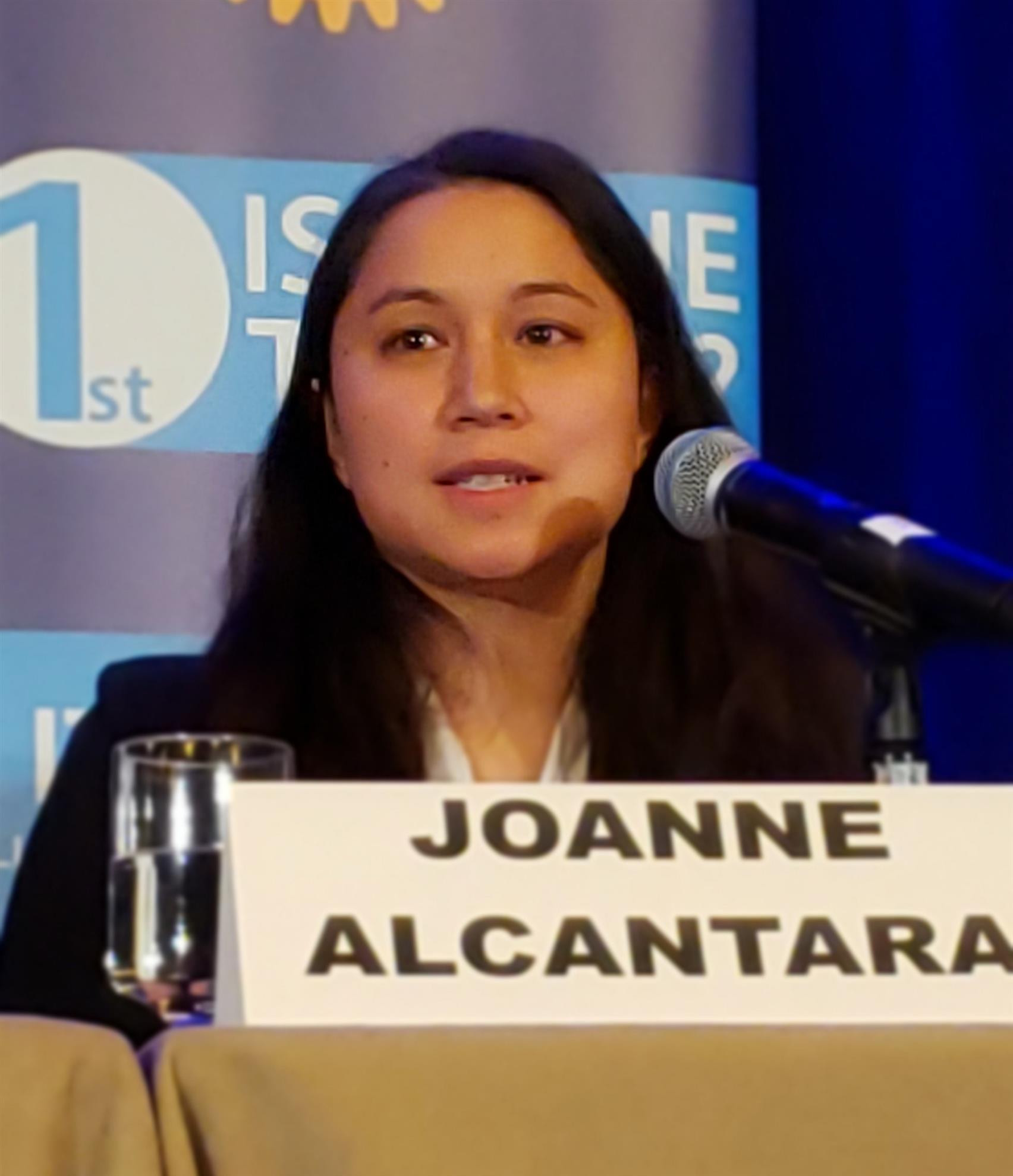 Challenges faced by the panelists' clients include the threat of deportation, homelessness, a need for mental health services, and being charged with crimes for defending themselves against an abuser. They are in a foreign country where they don’t speak the language or know the customs. Certainly, they are unfamiliar with the laws and they have no support network of friends or family.
Challenges faced by the panelists' clients include the threat of deportation, homelessness, a need for mental health services, and being charged with crimes for defending themselves against an abuser. They are in a foreign country where they don’t speak the language or know the customs. Certainly, they are unfamiliar with the laws and they have no support network of friends or family.
Responses from Q&A:
How does your organization support immigrant spouses?
Alice: We provide legal advice and financial support during a divorce. Also, we find volunteer attorneys who are bilingual.
Malou: We partner with other organizations to provide services to the client in crisis.
Joanne: There is a range of things that we do. So far, 785 individuals have been helped. We walk with survivors along their journey and help them to prioritize their needs. We partner with other agencies.
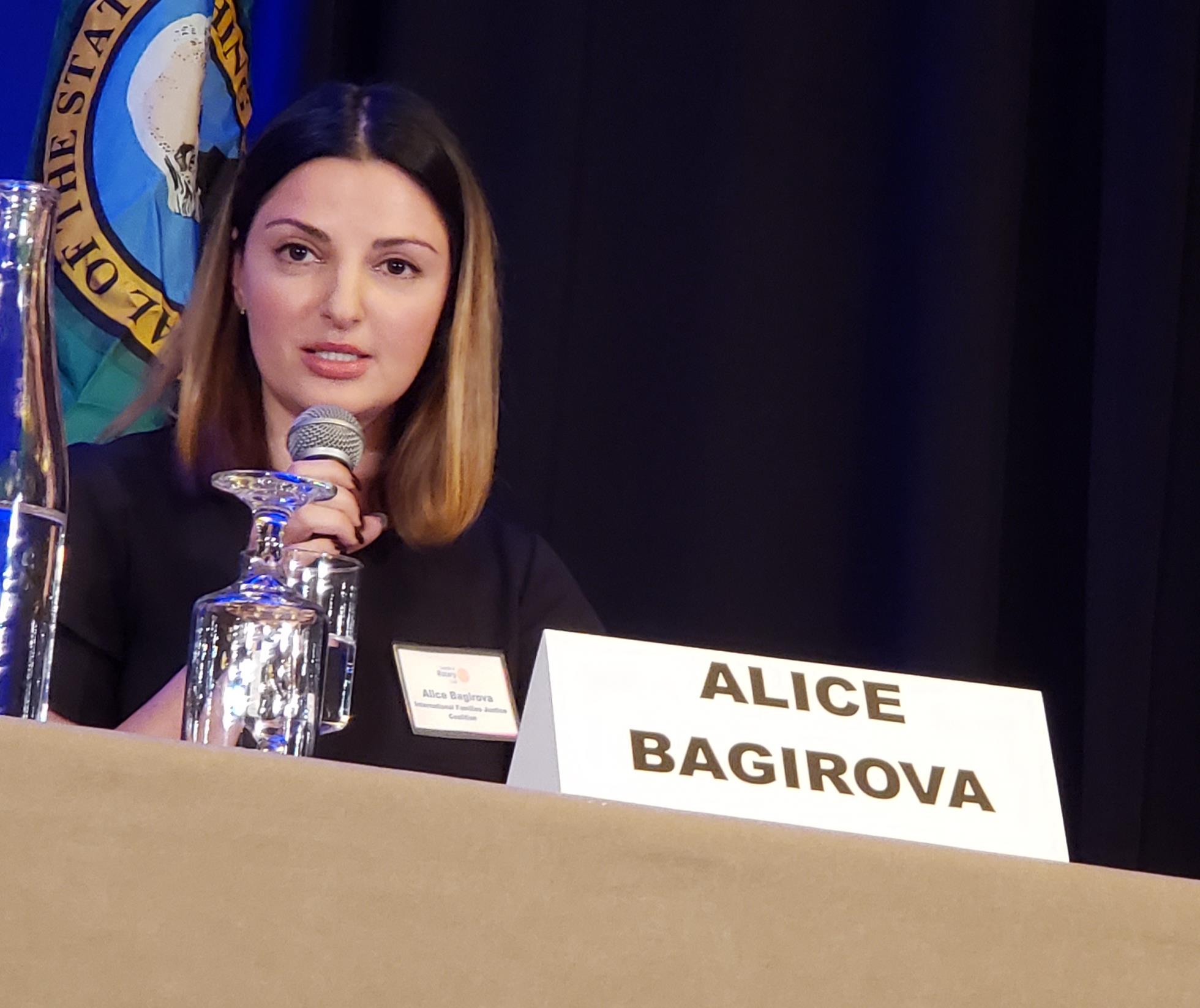 What can we do as concerned citizens?
What can we do as concerned citizens?
Malou: Encourage the survivor to call for help but also support them directly. Believe survivors. All these agencies need volunteers and funds.
Alice: You can support legislation requiring documents to be translated into native languages for abused spouses. Talk to people about the problem and keep your eyes open to see who might need help.
Dorothy: Consider volunteering your professional or personal skills to one of these agencies. Maybe you speak a language that could help you make a connection.
How do you overcome trust issues?
Make the person feel comfortable. Believe their story. Something as simple as preparing a dish from someone’s home country can provide comfort and support for a person.
What is going on in the mind of the perpetrator?
They are often abuse survivors themselves. They believe that their unhealthy personal dynamics are normal. It’s all about power. Jobs, immigration status, and money can all be sources of power. As soon as the perpetrator feels that they are losing power, they feel vulnerable. A change in power means a change in vulnerability.
Todd Summerfelt provided the day's inspiration, remarking that Friday is International Women’s Day and so the day's discussion is relevant. He thanked Elizabeth Barrett Browning and many feminist activists. We have come a long way, but she would say that we still have a long way to go. He added, “Great Creator, our world needs all the help we can get. Save us from the handicaps we impose on ourselves when we accept any limits that society places on others based on class rather than merit.”
Skip Rowland, despite a virus, led us in The Star Spangled Banner in B flat accompanied by the inimitable Ken Grant.
 Jeff Borek gave us a foundation update. He talked about what a check-writing club is and that we are it. Not that there is anything bad about donating money for worthy causes. He quoted Loren Eiseley, anthropologist, educator, writer, and naturalist. Eiseley’s story is called the Starfish Story. It is about a girl who walks the beach, picking up starfish and tossing them back into the surf. When told that she could not possibly make a difference and save all the starfish at risk, she replies, “I made a difference for that one.”
Jeff Borek gave us a foundation update. He talked about what a check-writing club is and that we are it. Not that there is anything bad about donating money for worthy causes. He quoted Loren Eiseley, anthropologist, educator, writer, and naturalist. Eiseley’s story is called the Starfish Story. It is about a girl who walks the beach, picking up starfish and tossing them back into the surf. When told that she could not possibly make a difference and save all the starfish at risk, she replies, “I made a difference for that one.”
Jeff thanked the SRSF Board, the RCOS Board, and all of us who have fulfilled our commitments. We have made a difference.
Ken made a video to send to the missing President Cindy Runger to show how we missed her so that she will hurry back.
Next week, Alejandro Grajal, CEO of the Woodland Park Zoo, will share how his organization is redefining the zoo for the 21st century.
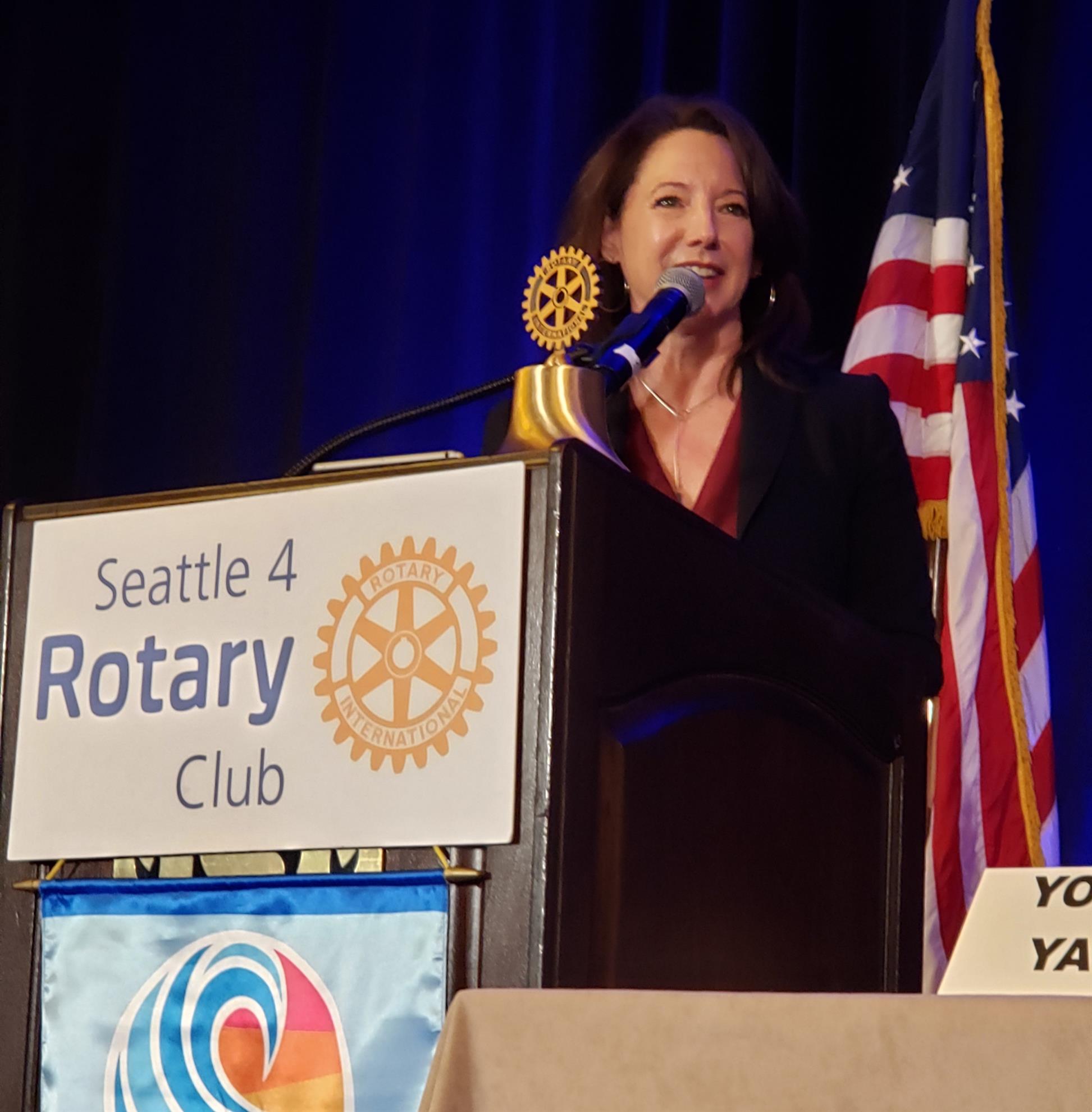 Sue Nixon, who presided in Cindy's place, closed the meeting by sharing how her memorable closing stories came to her at 3:00 am during her presidency. She encouraged attendees to let go of expectation and keep listening, adding that, “having a voice is privilege. Giving voice to another is profound.”
Sue Nixon, who presided in Cindy's place, closed the meeting by sharing how her memorable closing stories came to her at 3:00 am during her presidency. She encouraged attendees to let go of expectation and keep listening, adding that, “having a voice is privilege. Giving voice to another is profound.”
